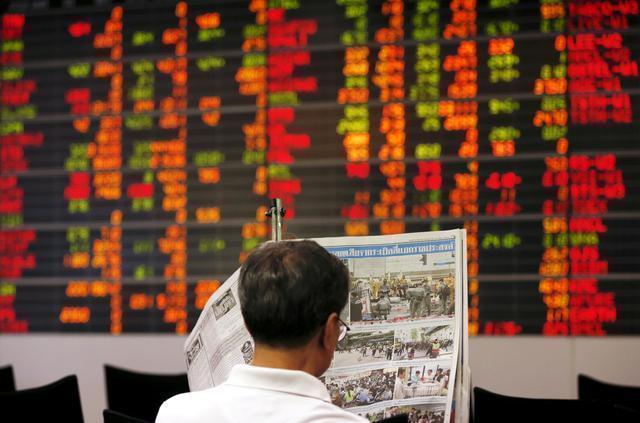The Central Bank raised the year-end inflation forecast from 42.8% to 60.4% for 2022 and from 12.9% to 19.2% for 2023 in the Third Inflation Report of the year. Although the bank’s revisions remained below the 69.9% indicated in the Survey of Market Participants, they seem to have a more realistic outlook, according to Oyak Yatirim. The inflation forecast presented by the Central Bank shows that inflation will exceed 80% in September-October and rapidly decline to 60.4% in the last two months of the year.
Central Bank Governor Sahap Kavcioglu didn’t indicate anything about the course of the policy rate or the government’s stance during his presentation at the meeting. However, Kavcioglu stated that the fact that the policy rate isn’t being raised doesn’t mean that the interest rate won’t be used as a policy tool. Stressing that Turkey doesn’t deserve such a high CDS level, Kavcioglu said the Turkish economy, which will grow by 7.0% for two consecutive months this year and has raised employment over the last year, doesn’t negatively differentiate from other countries.
Touching on inflation, Kavcioglu stated that Turkey is making an effort so that inflation doesn’t transform into inertia. He also added that drastic actions can be taken to fight against inflation in the upcoming period.
Turkey will impose an additional 10% customs duty on electric vehicles (EV) imported from countries such as the U.S., China, Japan, India, Canada, and Vietnam that aren’t included in a free trade agreement or the Customs Union, according to a Presidential Decree published in the Official Gazette. Thus, the customs duty on EVs has been raised from 10% to 20%. The new regulation will raise the price of EVs imported from Far East countries to Turkey. Sector representatives said the decision would affect the competitiveness of the Far Eastern brands in the Turkish market, according to daily DUNYA. Some sector representatives also stated that this additional customs duty will provide an advantage to TOGG, which will be released next year. MG, Seres, and Skywell, the three Chinese EV manufacturers, have official distributorship in Turkey. U.S.-based Tesla, meanwhile, has recently launched an office in the country.
Turkey’s benchmark stock index Borsa Istanbul fell by 0.03% to end at 2,543,33 points yesterday. Borsa Istanbul’s BIST 100 index lost 0.78 points from the previous close. Although risk appetite has risen after Federal Reserve (Fed) Chair Jerome Powell’s message that the bank would take more gradual steps in coming meetings following the Fed’s interest rate hike of 75 basis points, sales pressure has increased in the markets after the U.S. economy contracted for the two consecutive quarters and entered a technical recession, according to analysts. They said 2,510 points will be the support level and 2,590 points will be the resistance level for the BIST 100 index, in technical terms.
DAILY AGENDA
Exports rose by 18.7% to USD 23.42bn and imports climbed by 39.7% to USD 31.59bn in June, compared to the same month last year, according to the Turkish Statistical Institute (TurkStat). Foreign trade deficit jumped 184.5% from USD 2.87bn to USD 8.16bn in the same period.
The Services Producer Price Index (S-PPI) soared 91.27% in June, year-over-year, according to TurkStat. The S-PPI surged by 7.34% on a monthly basis.
Tourism revenues jumped 190.2% to USD 8.71bn in the second quarter, compared to the same period of the previous year, according to TurkStat.
Meanwhile…
>> Foreign investors’ net equity and government debt securities and corporate bond outflows from Turkey totaled USD 76.5m, USD 4.2m, and USD 7.5m, respectively, in the week ending on July 22, according to the Central Bank.
>> Residents’ FX deposit accounts dropped by USD 742m in the week ending on July 22, compared to the previous week, according to the parity-adjusted data from the Central Bank.
>> The Central Bank’s international net reserves rose by USD 343.5m to USD 6.7bn in the week ending on July 22, compared to the previous week. The bank’s total reserves declined by USD 1.04bn to USD 98.32bn in this period.
>> The total amount in FX-protected TRY deposit accounts has reached TRY 1.1tr as of July 22, according to the Banking Regulation and Supervision Agency (BDDK).
>> The banking sector’s total loan volume surged by TRY 83.6bn from TRY 6.32tr to TRY 6.41tr in the week ending on July 22, compared to the previous week, according to BDDK.










